Tom's Guide Verdict
At $350, the Google Pixel 4a offers best-in-class camera performance. While it can’t match the iPhone SE’s power, the Pixel 4a is the better handset overall, though the Pixel 5a offers a newer, 5G-capable alternative.
Pros
- +
Best-in-class camera
- +
Bright OLED display
- +
128GB storage
- +
Attractive design
- +
Low price
Cons
- -
iPhone SE outperforms it
- -
Battery life could be better
- -
No longer the best Pixel A phone
Why you can trust Tom's Guide
Price: $349
OS: Android 10 (updated to Android 11)
Display: 5.81-inch OLED (2340x1080)
CPU: Snapdragon 730G
RAM: 6GB
Storage: 128GB
Rear camera: 12.2MP (ƒ/1.7)
Front camera: 8MP (ƒ/2.0)
Battery: 3,140 mAh
Battery life: 8:55
Size: 5.7 x 2.7 x 0.3 inches
Weight: 5.04 ounces
The Google Pixel 4a takes everything that made 2019's Pixel 3a great — the flagship-caliber camera, the thoughtful software, the impressive build quality — and improves upon it, while also lowering the price to $349. The result isn’t simply the best cheap phone on the market; it’s one of the best phones, period, even as we get closer to the first anniversary of its release.
In fact, after testing the Pixel 4a when it shipped last year, I personally wouldn’t hesitate to choose it over the iPhone SE. While the iPhone SE is more powerful and has conveniences like wireless charging and water resistance, Google’s midrange offering tops Apple’s in several other areas, including a larger and brighter OLED display, more modern design and double the storage out of the box. There'a a reason the Pixel 4a topped the iPhone SE for best phone value in our Tom's Guide Awards 2021 honoring the top phones.
I would prefer more battery life, and the Google Pixel 4a 5G is a better option if you want 5G connectivity and are willing to pay about $100 more. But as our Google Pixel 4a review illustrates, this is one of those rare affordable smartphones that does just about everything well. The only reason to look elsewhere for a phone is that Google now offers the Pixel 5a, which is more powerful, offers better cameras, and works with 5G, though it's also $100 more.
Editor's note: We crowned our picks in the Tom's Guide Awards 2021 for the phones category. The Pixel 4a won the best phone value award.
- Google Pixel 4a vs iPhone SE: Why Google beats Apple
- Best unlocked Android phones
- Google Pixel 5a vs. Pixel 4a: Is the new affordable Pixel worth it?
Google Pixel 4a review: Price and availability
The Pixel 4a continues to be available unlocked from Google and retailers like Amazon, though supplies are drying up. You can also buy the phone through Verizon's prepaid service, and US Cellular. At Google Fi, the Pixel 4a is no longer available now that the Pixel 5a is here.
In the UK, you can still readily find the Pixel 4a, as Google didn't release the Pixel 5a in that market.
There’s only one configuration of this $349 device with 128GB of storage. That's a $50 drop from the price of the Pixel 3a when that phone debuted in 2019. (We've got a look at all the differences between those two phones in our Google Pixel 4a vs. Pixel 3a face-off.)
We reviewed the Just Black version. After this review went live, Google released a Barely Blue color option that's exclusive to its online store but seems to have sold out.
As with all Pixel phones, there’s no microSD expandability here, so having all that space available from the get go is certainly useful.
The Pixel 4a has been officially discontinued. It lived a good life, but it still has some software support life left in it. It'll enjoy another year of Android platform updates and two more years of security patches before it hits end-of-life.
Google Pixel 4a review: Design
If you’ve seen Google’s Pixel phones in recent years, you know they don’t tend to take risks in terms of design. At a time when Mountain View’s competitors began churning out devices with miniscule bezels, massive multi-lens cameras and hole-punch front-facing shooters, the latest Pixels have been rather pedestrian in terms of their appearance, only distinguished by unique materials, finishes and colorways.
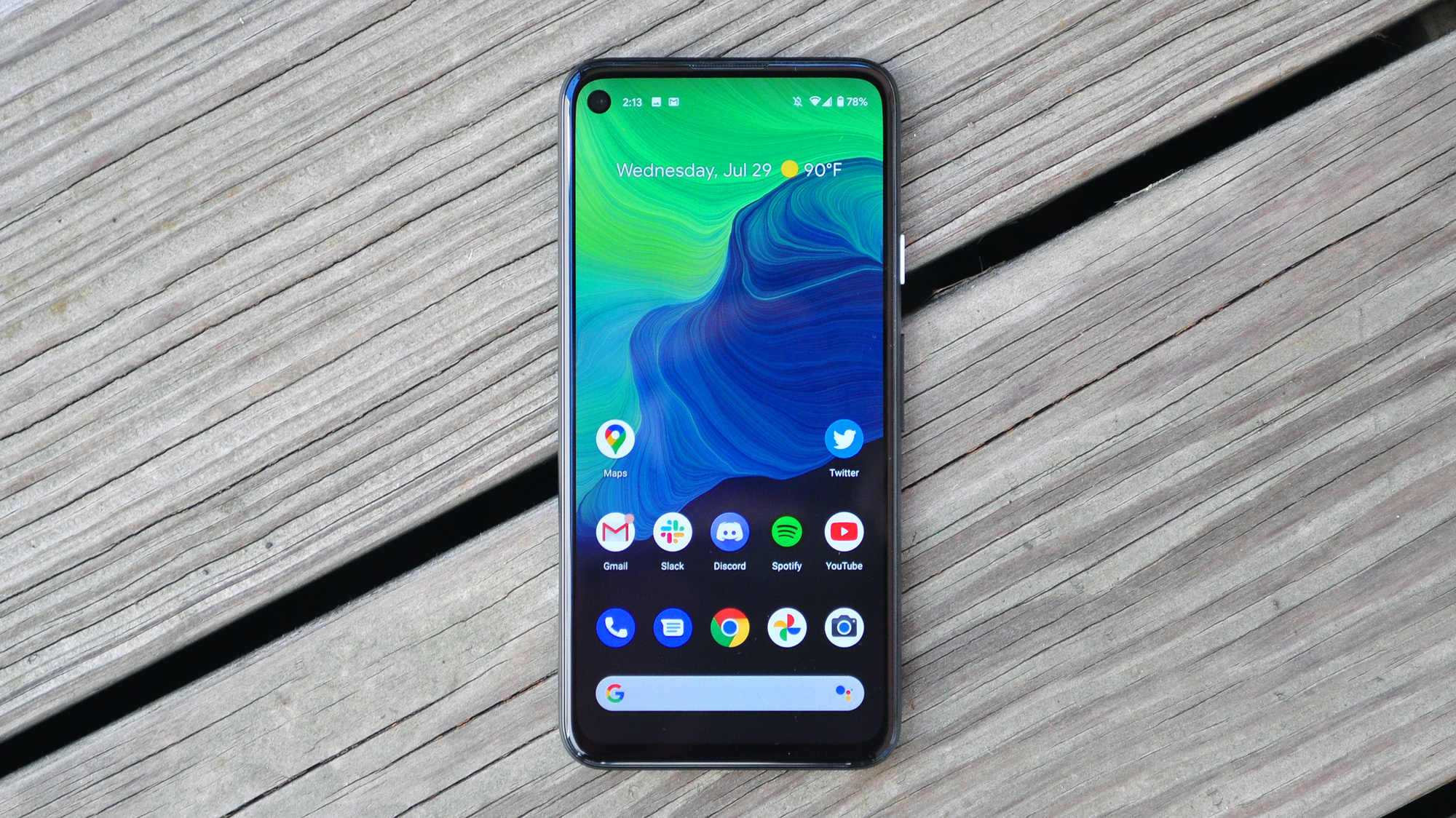
And so it’s hardly surprising that the Google Pixel 4a looks a lot like Pixel 4, but cleaner and lighter, with slimmer bezels and a plastic-clad chassis replacing the pricier phone’s combination of glass and metal. Thankfully the Pixel 4a still manages to feel satisfyingly solid, thanks to a matte texture that’s pleasing to the touch. The square camera patch on the back seems a little silly, especially considering the Pixel 4a only features one lens and the LED flash, though at least the camera array is smaller and dare I say cuter than the one on the back of the flagship Pixel 4.
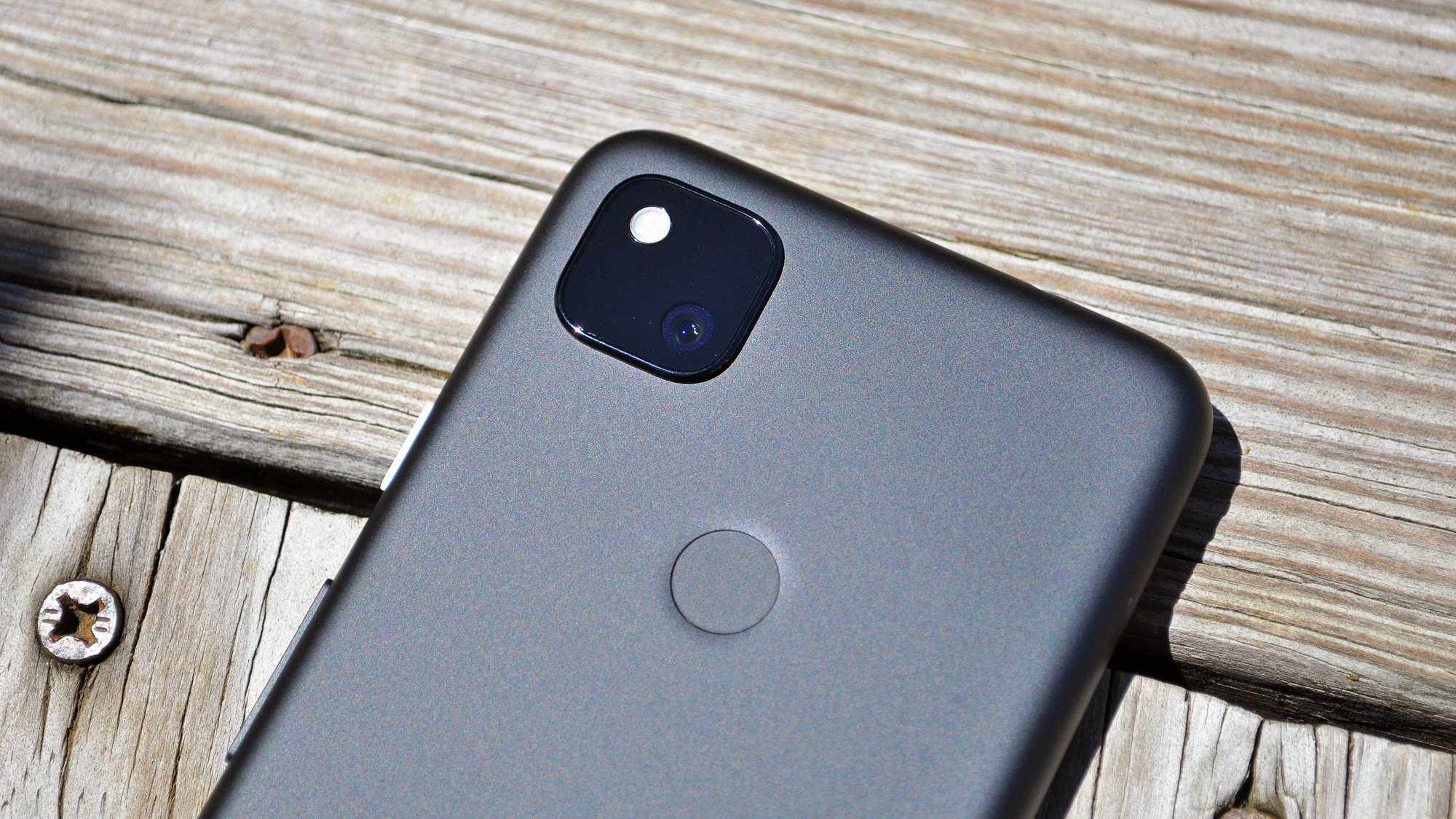
Rather than an in-screen fingerprint sensor, the Pixel 4a has the rear-mounted capacitive Pixel Imprint scanner of old, which I actually prefer to newer optical and ultrasonic solutions. It’s cheaper to implement, so it keeps the cost of the phone down, and I also find it to be much snappier to use, with fewer false negative results. Additionally, because it’s on the back, you can effortlessly swipe down on it to reveal quick toggles and notifications, which makes for a handy shortcut.
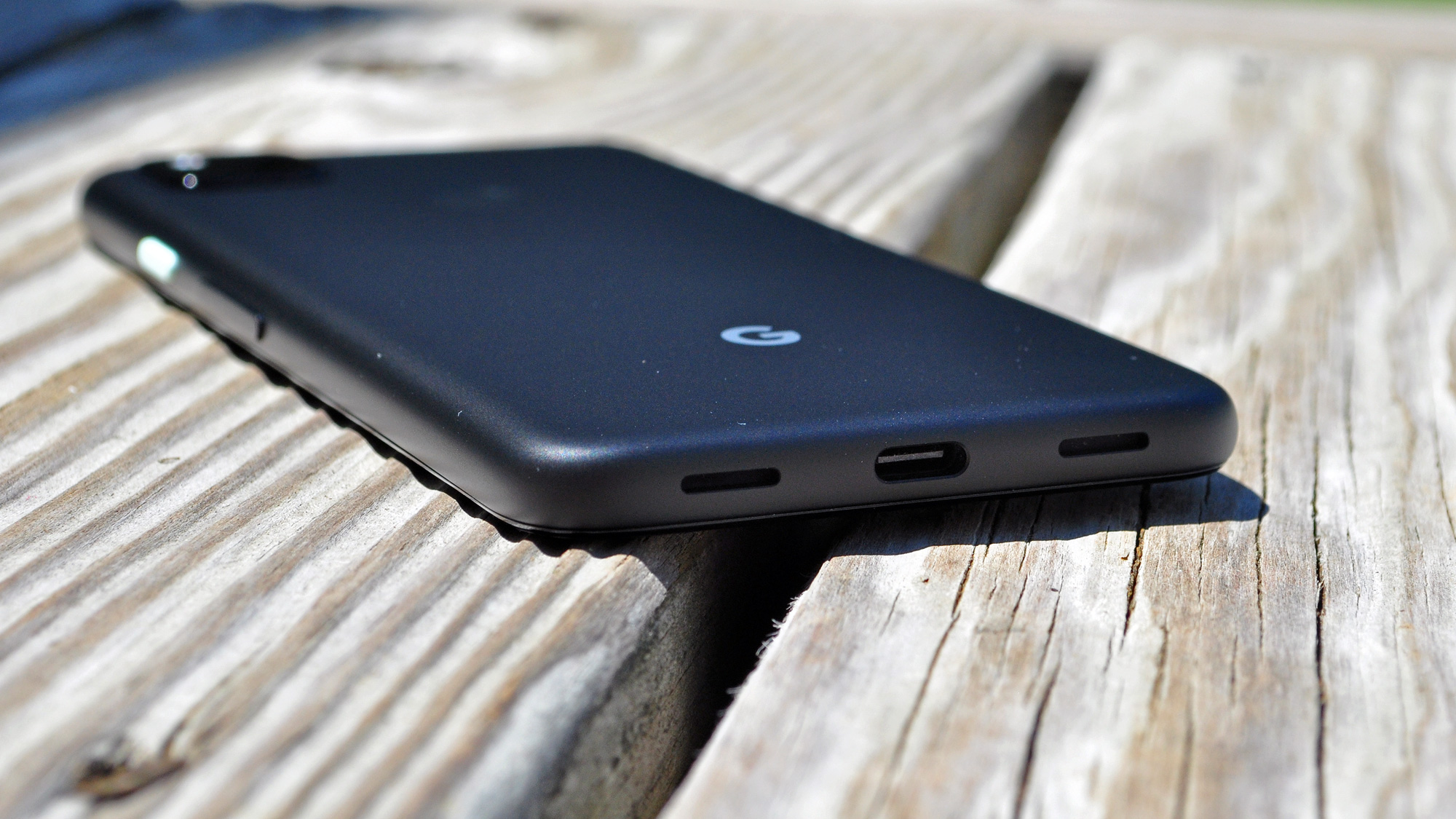
There are two things I really appreciate about the Pixel 4a’s design that deserve callouts. First is the headphone jack, the inclusion of which still isn’t lost on me all these years since most phone makers have abandoned it. The second is the presence of stereo speakers, which is especially impressive given that the Pixel 4a lacks the prominent top bezel of the Pixel 4.
Despite the packaging constraints, Google was still able to stuff a speaker within the earpiece, housed in a barely-perceptible slit in the top edge. In conjunction with the bottom-firing speakers, it’s quite powerful — less warm and bassy as my iPhone 11 Pro’s drivers, but still just as loud.
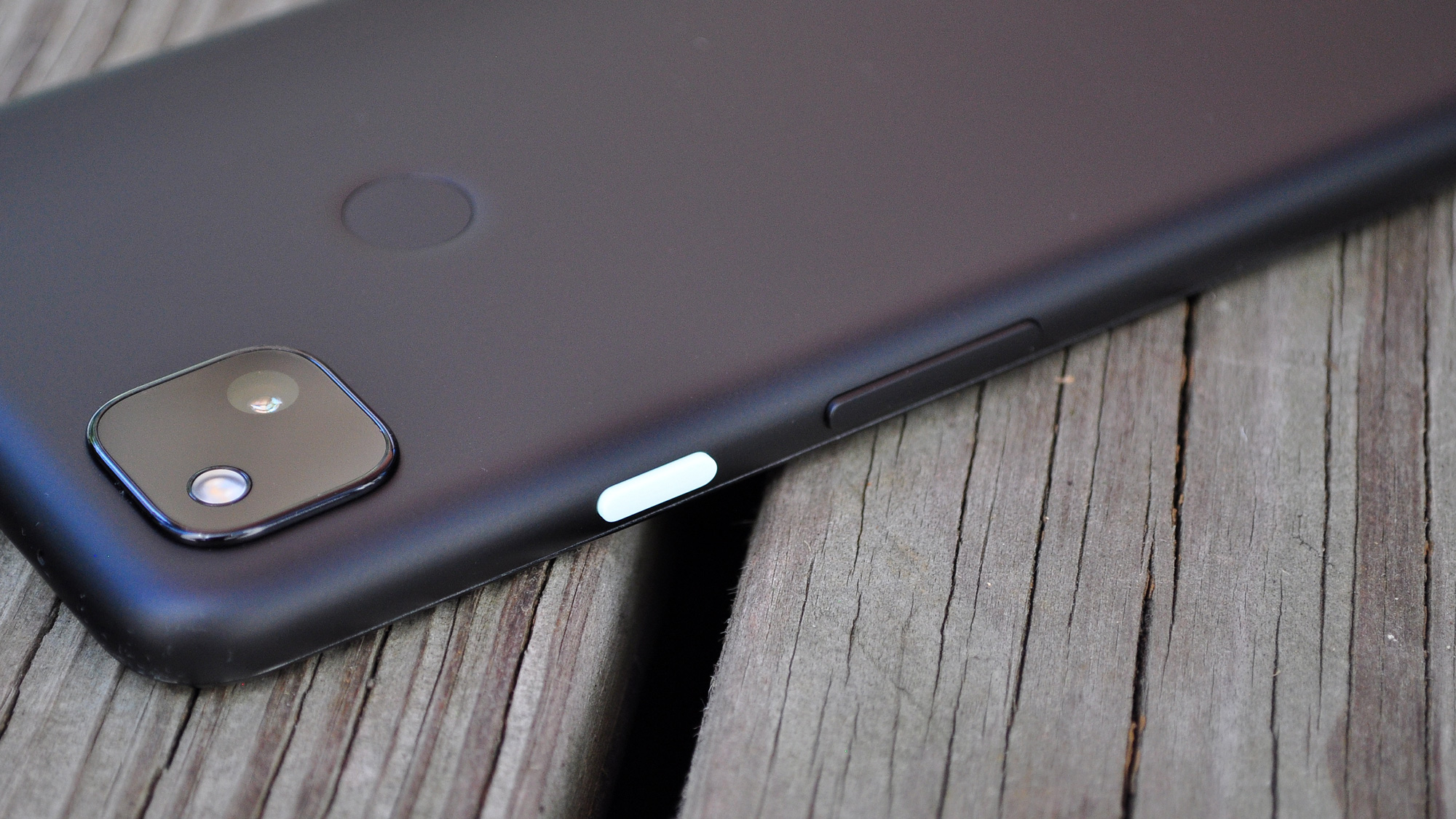
That said, this phone isn’t flashy, even though you can now pick either a black or blue version (at least if you do your shopping at Google). Blame the ongoing coronavirus pandemic, as Google has told us it originally released one color to “streamline manufacturing and prevent further delays.” It’s disappointing, especially because the Pixel line has always adopted a playful and refreshing approach to colors — though at least Just Black still receives a hint of flavor thanks to its mint power button.
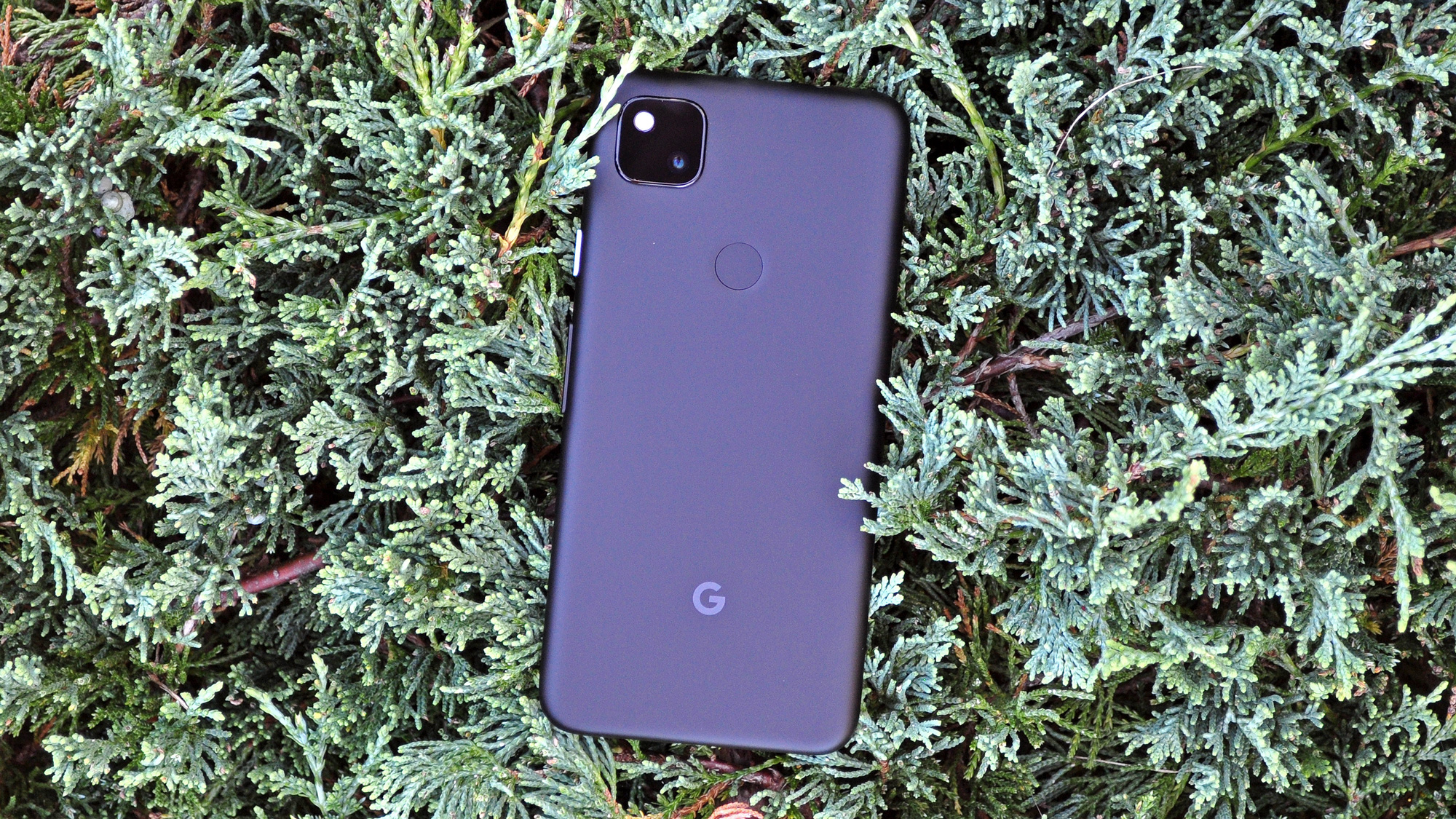
Unfortunately, there’s two areas in which the Pixel 4a falls to the iPhone SE where design is concerned. This phone isn’t rated for water resistance at all, and it cannot charge wirelessly. Given that those are rare features at this price, I’m not bothered too much by that — after all, the iPhone SE is the exception to the budget phone rule, not the norm. Also, for what it's worth, the infinitely more modern and attractive design of the Pixel 4a offsets those concessions. Given my penchant for small phones, I love that the 5.8-inch Pixel 4a is just a smidge taller than the 4.7-inch iPhone SE, but packs so much more screen real estate.
Google Pixel 4a review: Display
The Pixel 3a was one of the cheapest handsets on the market with an OLED screen, and the Pixel 4a continues that distinction. The 5.81-inch, full-HD panel in Google’s new midrange phone delivers bold yet realistic color, and gets surprisingly bright as well.
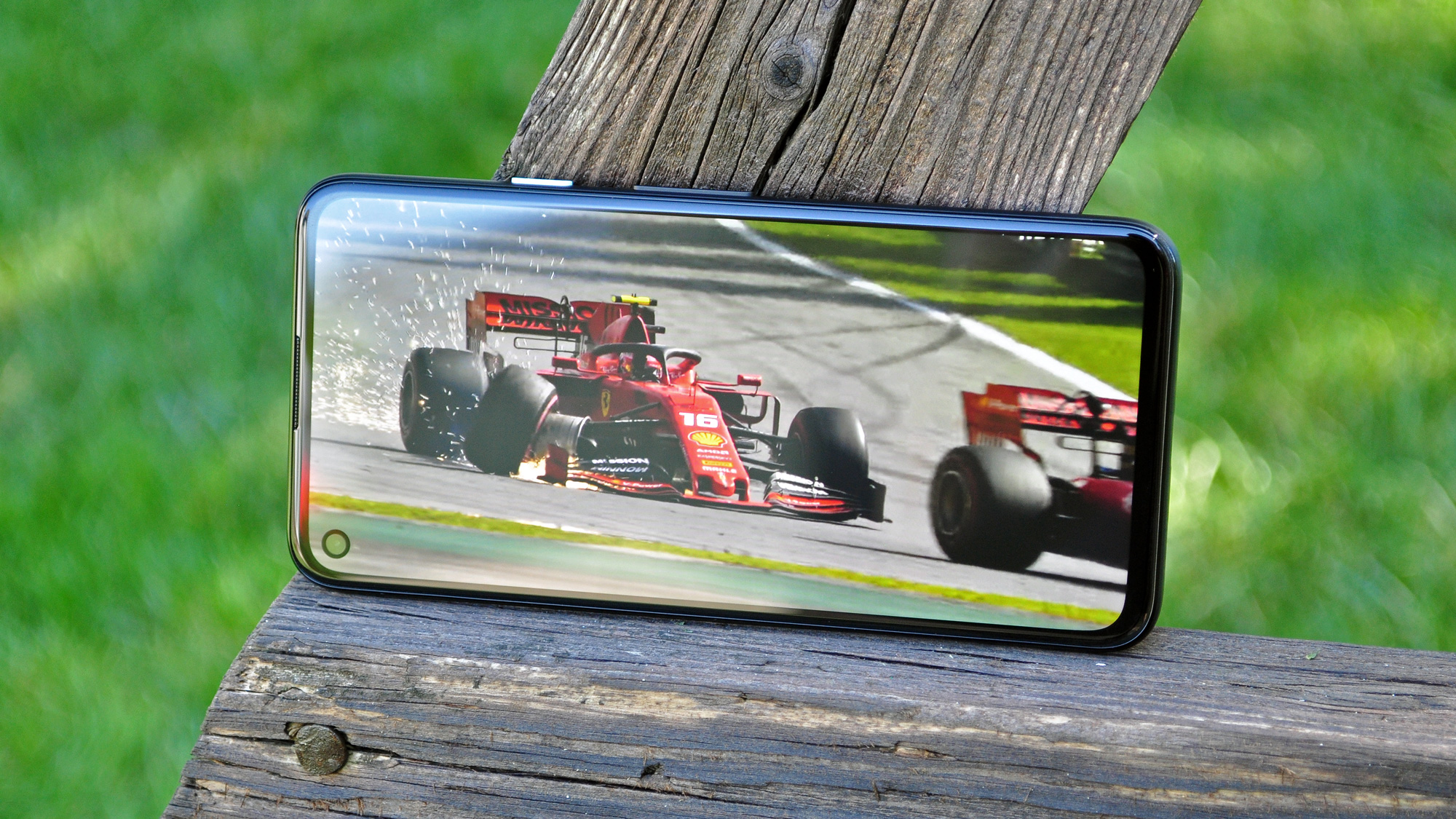
The deep, inky blacks of the Pixel 4a’s OLED panel lended a suitably dark and grizzly vibe to the trailer for the Train to Busan sequel, Peninsula, while the impressive contrast made the daybreak scenes all the more captivating. And as I watched the trailer for the new science fiction thriller Sputnik, I was drawn toward the flashing CRT monitors and lights illuminating the desolate darkness of a Soviet control room in crisis.
When set to its Natural color profile, the Pixel 4a rendered 105.8% of the sRGB color space, which is actually a bit less saturated than the 111.2% of the LCD-powered iPhone SE. However, if you want more lively hues, you’re free to opt for the Boosted or Adaptive color settings on the Pixel. The iPhone SE has a slight advantage in terms of color accuracy though, notching a Delta-E score of 0.2 compared to the Pixel 4a’s 0.29. (Numbers closer to zero are better in this particular test.)
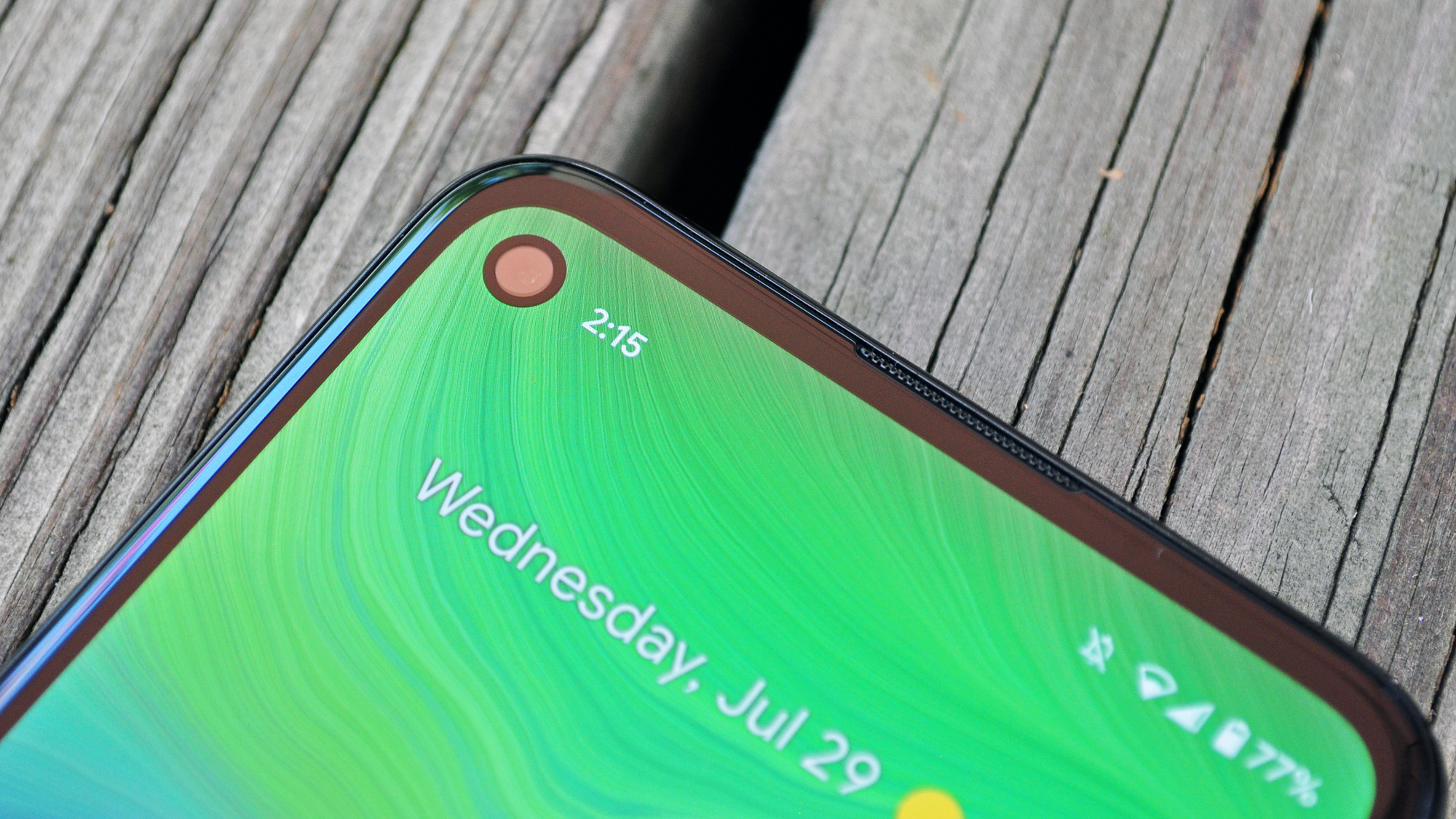
When it comes to brightness, the Pixel 4a follows the precedent established by most Android phones, in that you can only access its true peak full-screen brightness setting when Adaptive Brightness is turned on. The maximum manual setting tops out at 433 nits; outdoors in sunlight, with the adaptive setting enabled, the Pixel 4a’s panel can reach 681 nits. By comparison, the iPhone SE can hit 653 nits no matter whether you use auto or manual brightness.
Overall I’m hugely impressed with the Pixel 4a’s panel, save for two nitpicks. First, given that this phone is relatively low-priced compared to others that employ OLED technology, I’m not surprised that the viewing angles on the 4a pale slightly next to more premium OLED-toting models, like Google’s own flagship Pixel 4. There’s a bit of red and blue polarization that creeps in when viewing the panel from steep angles, though it’s nonexistent if you’re looking at the screen in a natural way, so it’s not a significant issue by any means.
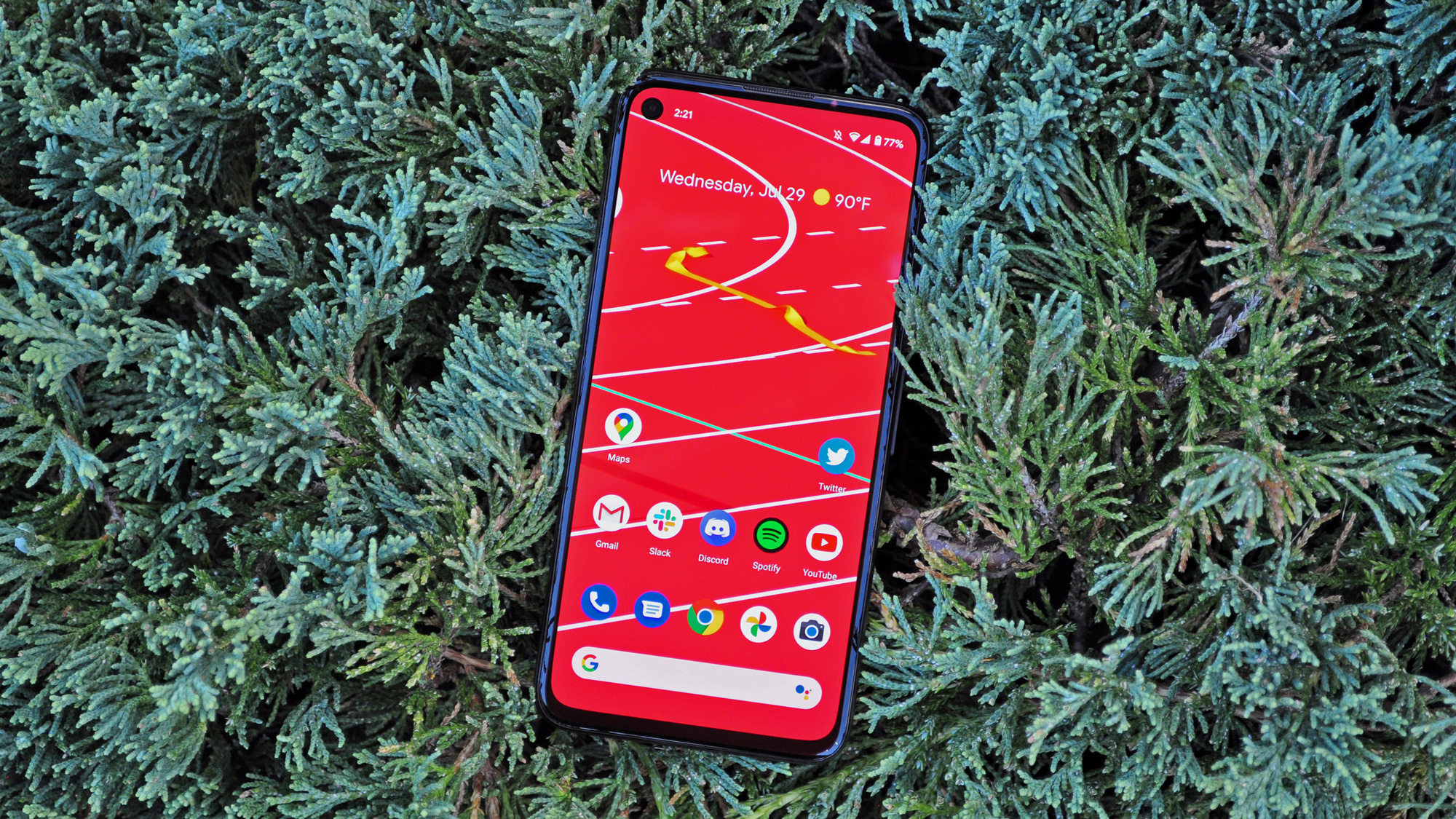
A more aggravating albeit fixable complaint concerns the Pixel 4a’s Adaptive Brightness tuning. Google introduced AI-aided Adaptive Brightness in Android 9 Pie, and unlike standard auto brightness, it’s built to learn your preferences and remember how bright you prefer your screen to be in certain lighting conditions. It worked excellently for me on the Pixel 3 and Pixel 4, but it’s an indecisive mess on the Pixel 4a.
Upon turning Adaptive Brightness on, the device raised and lowered the brightness seven times in the space of a minute, even though I didn’t move the phone at all. I tried to lead it in the right direction by manually adjusting the slider every time it made a change I didn’t want, but that didn’t help either. The software is simply far too aggressive as it stands, and refuses to defer to the user’s wishes. Hopefully, it’s something Google will address in an update.
Google Pixel 4a review: Camera
Looking at the Pixel 4a spec sheet alone, you’d expect very little from its camera. It uses the same lens and sensor as the past two generations of Google phones, and the numbers — 12.2 megapixels and an ƒ/1.7 aperture out of a single lens — surely aren’t very awe inspiring in an era when flagship models are boasting triple-digit megapixel counts.
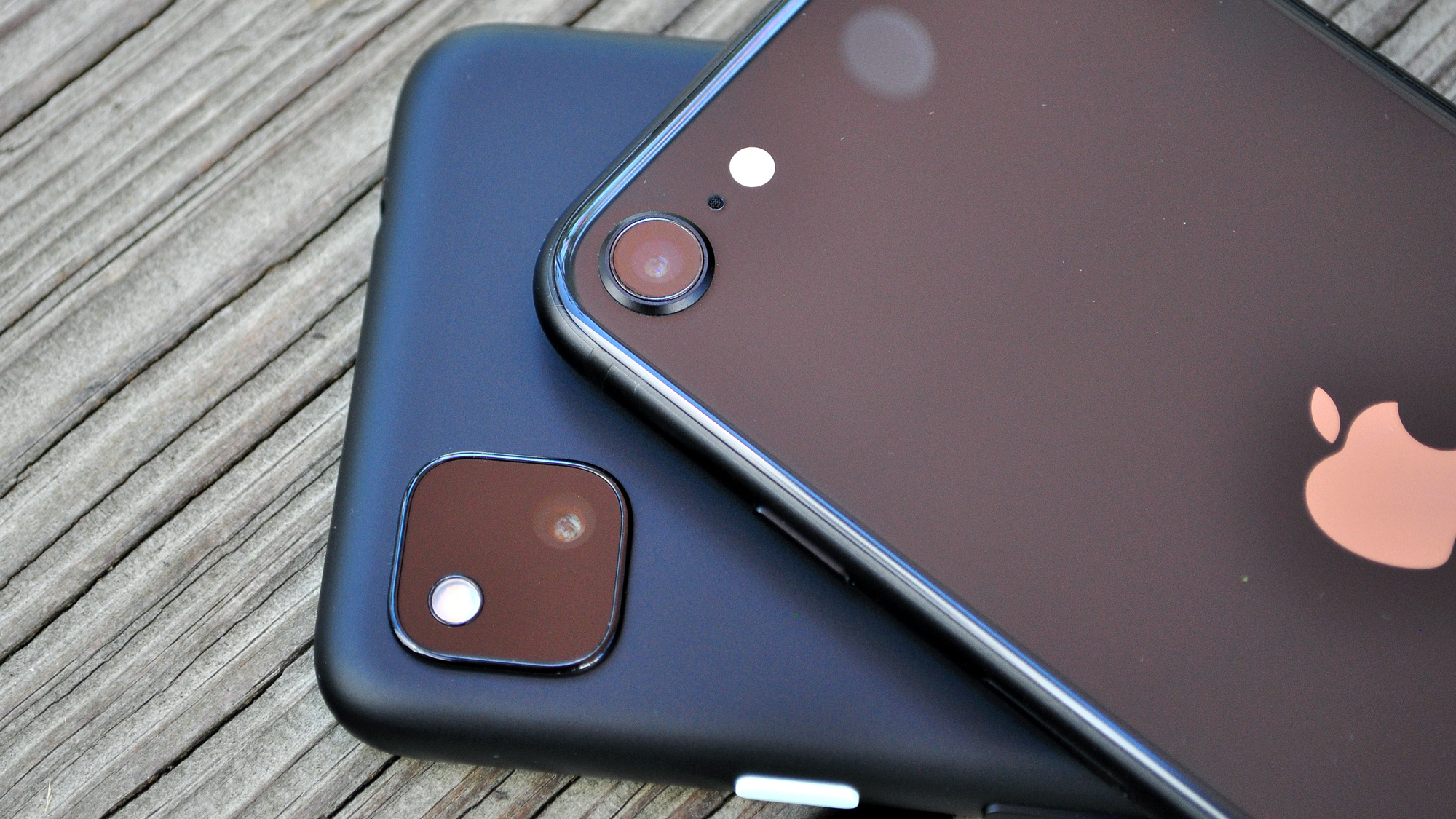
But you can’t argue with results, and boy, does this combination of modest hardware and clever software deliver results. The Pixel 4a benefits from many of the same features you’ll find in Google’s more premium phones, including Super Res Zoom to improve the quality of digital zoom, Live HDR+ to see the effect of HDR processing before you tap the shutter and Dual Exposure sliders that give you the ability to modify contrast and brightness on the fly. Beyond that, there’s Google’s beloved Night Mode, and just like the Pixel 4, this model can capture the starry skies as well.
No, the Pixel 4a doesn’t blow away the iPhone SE in every side-by-side image comparison that follows. But Google’s latest contender wins at enough of them, and offers so many more special features, that it’s hard to argue it’s not the best camera phone overall for the money.
We start with this shot of a forest, and straight away it’s easy to tell that the Pixel 4a extracts more lush, verdant greens out of the vegetation and more deftly reins in the overexposed sky breaking through the leaves. The iPhone SE’s rendition of this scene feels washed out and oversharpened by comparison.
However, the Pixel 4a’s emphasis on color can occasionally result in oversaturated scenes with unrealistically strong contrast, like this shot of a vase of sunflowers. The iPhone SE unquestionably delivered the more natural rendition here, as the yellow petals turn to a golden pseudo-orange through the Pixel 4a’s lens, and the shadows in the foreground and background alike are a little more pronounced than they should be.
That said, I don’t think either shot is necessarily poor; personally speaking, if I took the iPhone’s shot and did some light editing to it before sharing, I’d probably end up with the Pixel’s version, so it’s really a matter of preference.
Here I used 3x zoom on both devices to illustrate the advantage that Google’s Super Res Zoom tech offers. To me, this is the most underrated feature in any Pixel camera. Super Res Zoom almost negates the need for optical zoom or a telephoto lens by using natural hand shake and motion to intelligently “fill in” areas of the frame, giving the sensor more information to work with and thereby improving sharpness and overall image quality. Where the iPhone SE’s take is overcome with noise, the Pixel’s is precise, with more neutral white balance as well.
As both the Pixel 4a and iPhone SE sport single-lens rear cameras, they rely entirely on software to separate foreground and background for shallow depth-of-field bokeh shots. You immediately notice the vast difference in perspective the Pixel 4a and iPhone SE offer when capturing portraits — Google’s handset crops into the frame to simulate the use of a telephoto, while Apple’s doesn’t fuss with the vantage point.
Personally, I prefer Google’s approach, as it’s simply more useful for portrait taking. If I wanted to achieve a portrait more like the Pixel’s with the iPhone, I would have had to move in mere inches from the subject’s face — awkward already, but certainly a no-no in the age of social distancing.
Comparing the two on the basis of quality alone, however, Apple’s camera wins in terms of sharpness, and also accurately separates the subject from his surroundings — something that the Pixel 4a struggles with, particularly with the bokeh erroneously applied to the individual’s ear. That said, Google’s device was less intent on overly smooth facing features, and the colors, speaking both of the environment and the subject’s skin tone, are slightly more accurate.
A big question surrounding the Pixel 4a’s camera will likely be how it performs at night. Given that it has a Night Mode, which the iPhone SE lacks, it’s hardly surprising that it emerges the victor in this particular face-off. Google’s software is able to illuminate far more of the image, providing a sharp and noise-free view of the front door of the house in the image, while rendering the shadow of the railing on the grass below with exceptional contrast. It’s an example of how powerful a good Night Mode can be, as well as a reminder of the iPhone SE’s most glaring deficit.
Turning the camera back at myself, there are again aspects I like about both of these attempts. The Pixel 4a, with its 8MP front camera, is better at managing highlights and shadows, managing not to overexpose my white t-shirt like the iPhone did, while dulling the shine of my face on a humid, hot summer day. That said, Google’s take is inexplicably blurrier, and strangely warps the proportions of my face just a bit, despite beautification or retouching features being turned off.
Of course, starting with the Pixel 4a 5G, Google added a second ultrawide angle lens to its A Series phones. That trend has continued with the Pixel 5a, which also matches up well against other camera phones under $500.
Google Pixel 4a review: Performance
One of the most obvious concerns surrounding the Pixel 4a — or any budget-minded Android phone — tends to be performance. Qualcomm’s flagship 8 Series Snapdragon chipsets are tried and tested in flagships from every manufacturer, and 9 times out of 10, they perform flawlessly. But the chipmaker’s lower-end silicon often falls somewhere between weak and serviceable, and let’s face it — no mid-tier Qualcomm CPU is going to embarrass Apple’s A13 Bionic tech in the iPhone SE, let alone the even more powerful A14 Bionic powering the iPhone 12 models.
Bearing all that in mind, I’d say the Snapdragon 730G chipset in the Pixel 4a, coupled with its 6GB of RAM, delivers smooth and sufficient performance overall, though obviously faster phones have come out since the Pixel 4a's debut.
I often swap between an iPhone 11 Pro and Pixel 4 for my daily drivers, but during my time reviewing the Pixel 4a, I never felt desperate for power. In fact, when it comes to the basic tasks, I reckon the Pixel 4a is every bit as sprightly as the Pixel 4.
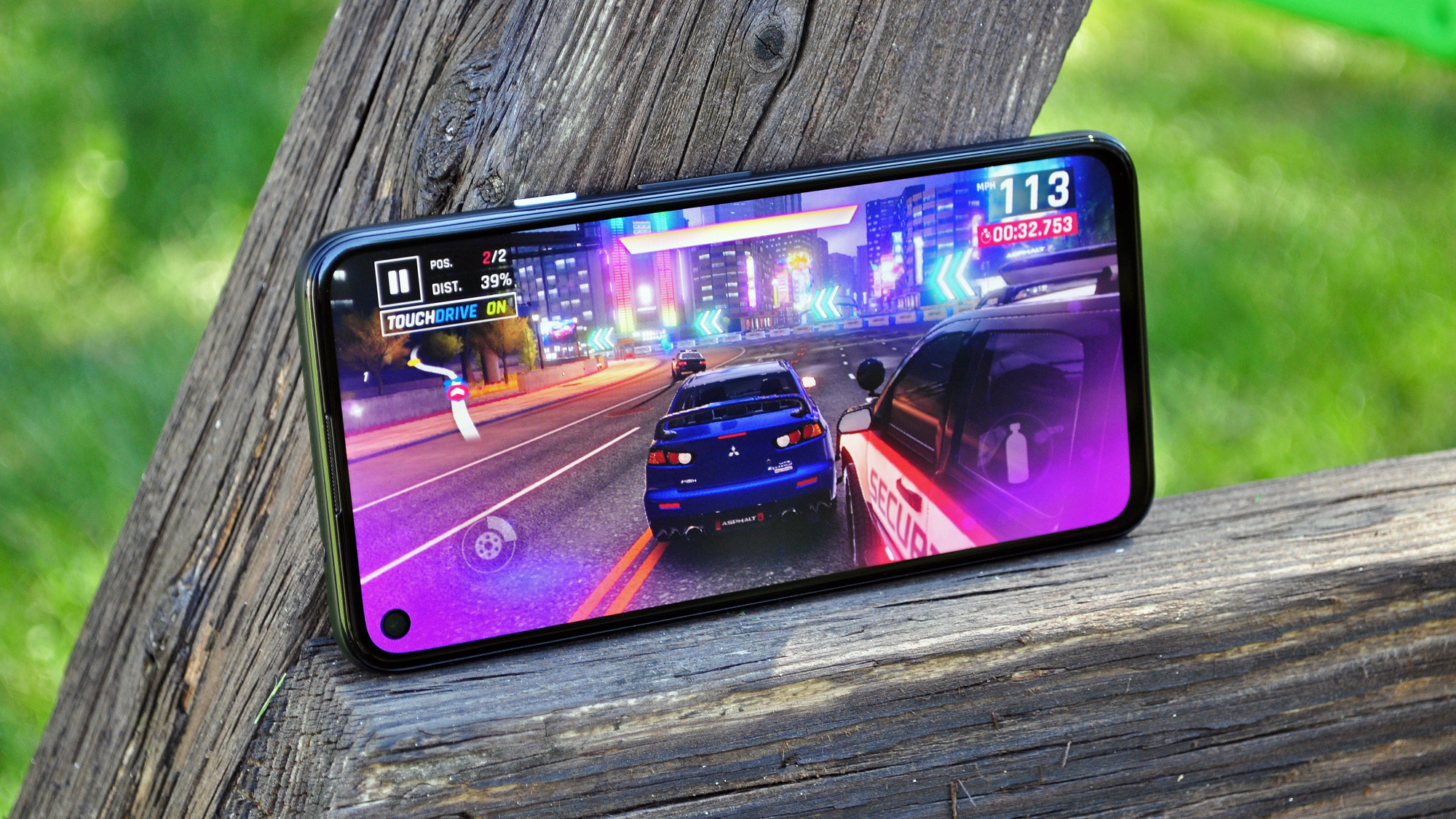
Unsurprisingly, though, gaming and photography where things start to waver a bit. Playing Asphalt 9 Legends on the Pixel 4a was a fine experience overall, but occasional skipped frames and a lower rendering resolution kept me well aware of the hardware I was racing on.
Likewise, you’ll have to wait a second or few longer for the Pixel 4a to conjure its post-processing magic on photos with that 730G chip, as this cheaper Pixel lacks Google’s dedicated Visual Core architecture. Burst shots, or repeatedly tapping the shutter for a bunch of frames in quick succession, won’t quite yield immediate results.
The benchmarks tell us why. In Geekbench 5, which evaluates overall system performance, the Pixel 4a achieved a multi-core score of 1,647 points; the iPhone SE managed 3,226, and with just one of the A13 Bionic’s six cores, it hit 1,331 alone. The Pixel 4a also took far longer to dispatch our Adobe Premiere Rush video encoding test, clocking 2 minutes and 27 seconds to convert a minute-long 4K video clip to 1080p. The iPhone SE needed just 47 seconds for the same task.
Ultimately, I believe the Pixel 4a’s performance will certainly be adequate for the vast majority of people, even with more powerful midrange phones now available. But if all-out power for the absolute least money is your priority, the iPhone SE remains unassailable. And if you're more of an Android fan, the Pixel 5a offers a performance boost with its Snapdragon 765G system on chip.
Google Pixel 4a review: Battery life and charging
Armed with a 3,140-mAh battery — a modest size by today’s standards, even though Google notes it’s the largest battery ever fitted to a “small” Pixel — the Pixel 4a’s battery life isn’t anything special. Google’s new midrange phone lasted an average of 8 hours and 55 minutes across four sessions of Tom’s Guide’s battery test, where the device endlessly refreshes web pages while set to 150 nits of screen brightness.
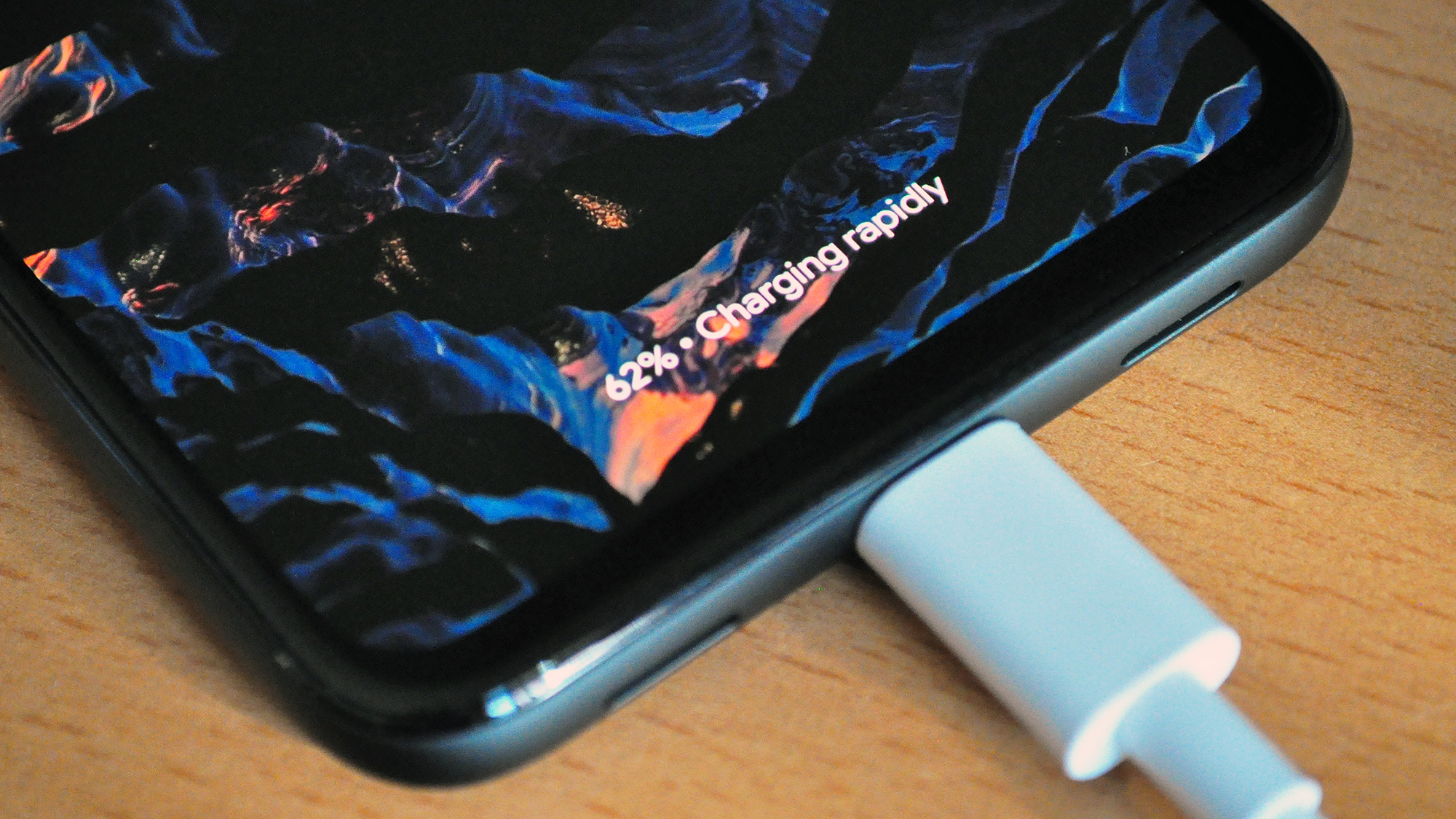
That’s a bit worse than the 9 hours and 18 minutes the iPhone SE turned in, and considerably poorer than a number of pricier smartphones, including the OnePlus 8 (11:04) and iPhone 11 (11:16), though ironically, the Pixel 4 actually churned out an hour less than its half-price brethren. If you want better battery life for even less than the Pixel 4a, we’d direct you toward the $249 Moto G Power, our current leader for the best phone battery life at an astonishing 16 hours and 10 minutes.
If you decide to go for the Pixel 5a, instead, you can expect better battery life. That phone lasted 9 hours and 45 minutes on our battery test.
At least the Pixel 4a recharges rather quickly, owing to its packed-in 18-watt adapter. This brick got our unit from completely dead to exactly half capacity in 30 minutes, which is pretty speedy for a device in this class. While it’s nice to know the Pixel 4a can juice back up in a pinch, its longevity on a charge is easily its weakest quality.
Google Pixel 4a review: Software and special features
Just as Google preserved the Pixel 4’s best camera tricks despite the Pixel 4a’s lower price, the Pixel 4a contained many of our favorite Pixel features that made Android 10 a little bit better at the time of the phone's launch. The Pixel 4a has subsequently gotten the Android 11 update, so you can expect the latest and greatest Android experience. The newly released Android 12 beta runs on the Pixel 4a, too, and the full version will run on this phone when it debuts in a few weeks.
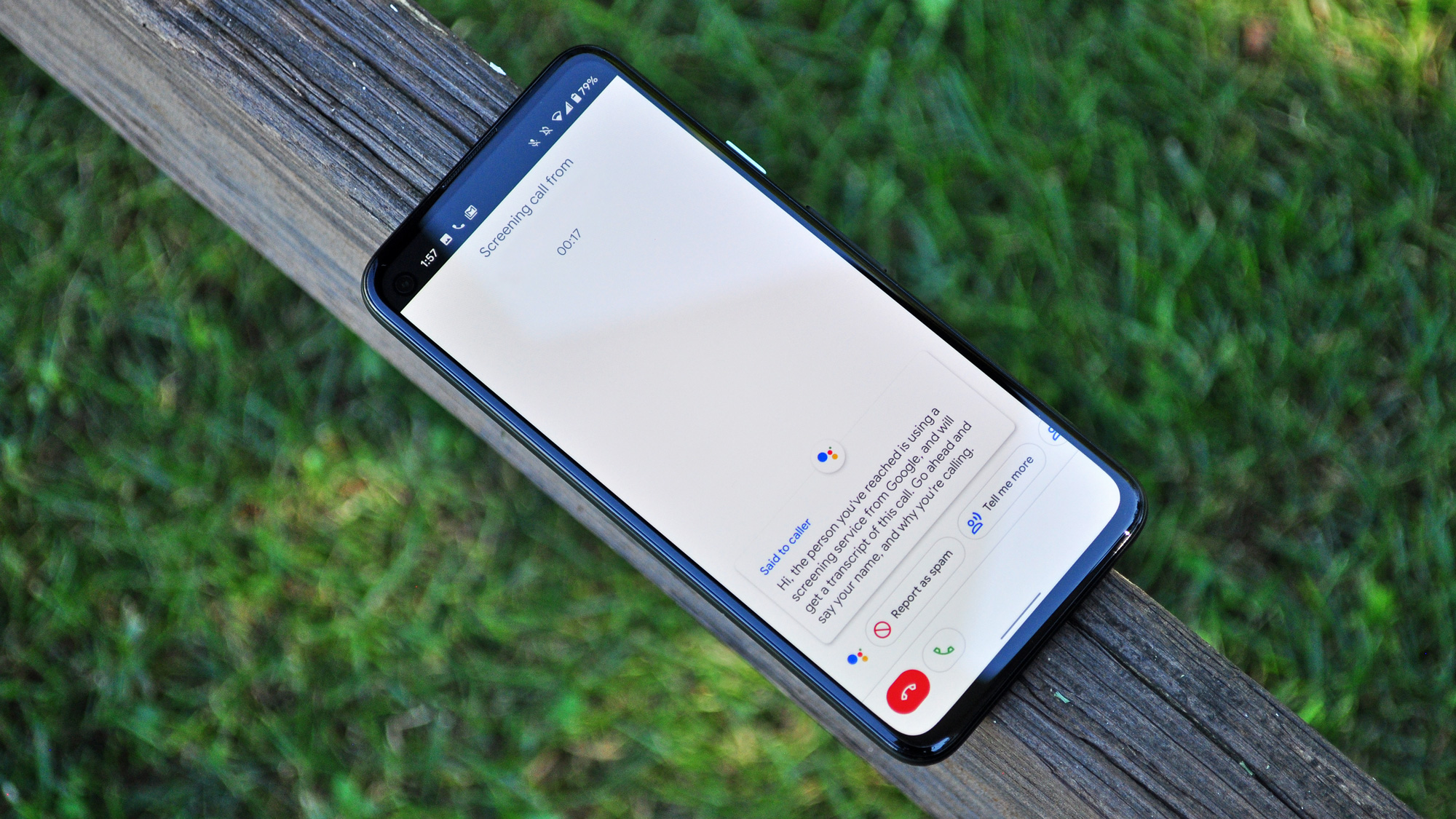
Android-based conveniences abound in the Pixel 4a, including Call Screen, which can fend off robocalls and telemarketers without forcing you to pick up your phone just to be duped. Google’s excellent Recorder app is here too — software we once hailed as our favorite app, because it transcribes voice to text in real time, and it’s also really, really good at it. Recorder can now export transcriptions to Google Docs, for even more seamless note taking.
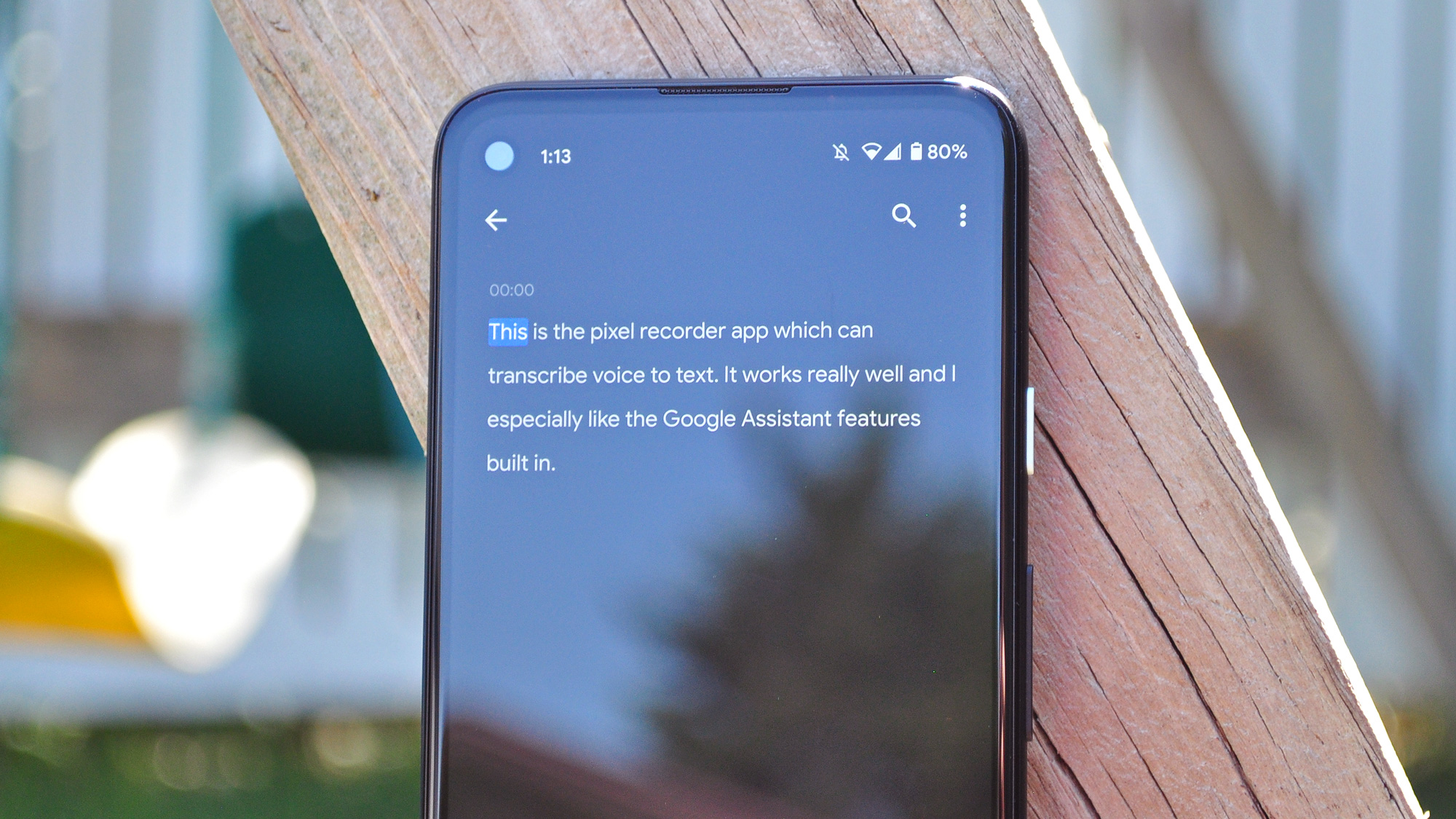
Otherwise, this is Android as you know and love it, with the addition of Android 11 features like Bubbles and notification grouping for messaging apps; one-time permission granting for apps; built-in screen recording; and a new power menu that offers quick access to your Google Pay cards and passes.
One feature that was often derided in Google previous Pixels that I actually miss in the Pixel 4a is Active Edge — the pressure-sensitive sides of the device that you can squeeze to summon Google Assistant. It was a feature that was admittedly easy to forget about, but proved quite handy when committed to memory. Google omitted Active Edge in the Pixel 4a presumably in the name of keeping costs low, and we wonder if it’ll ever return in another Pixel again.
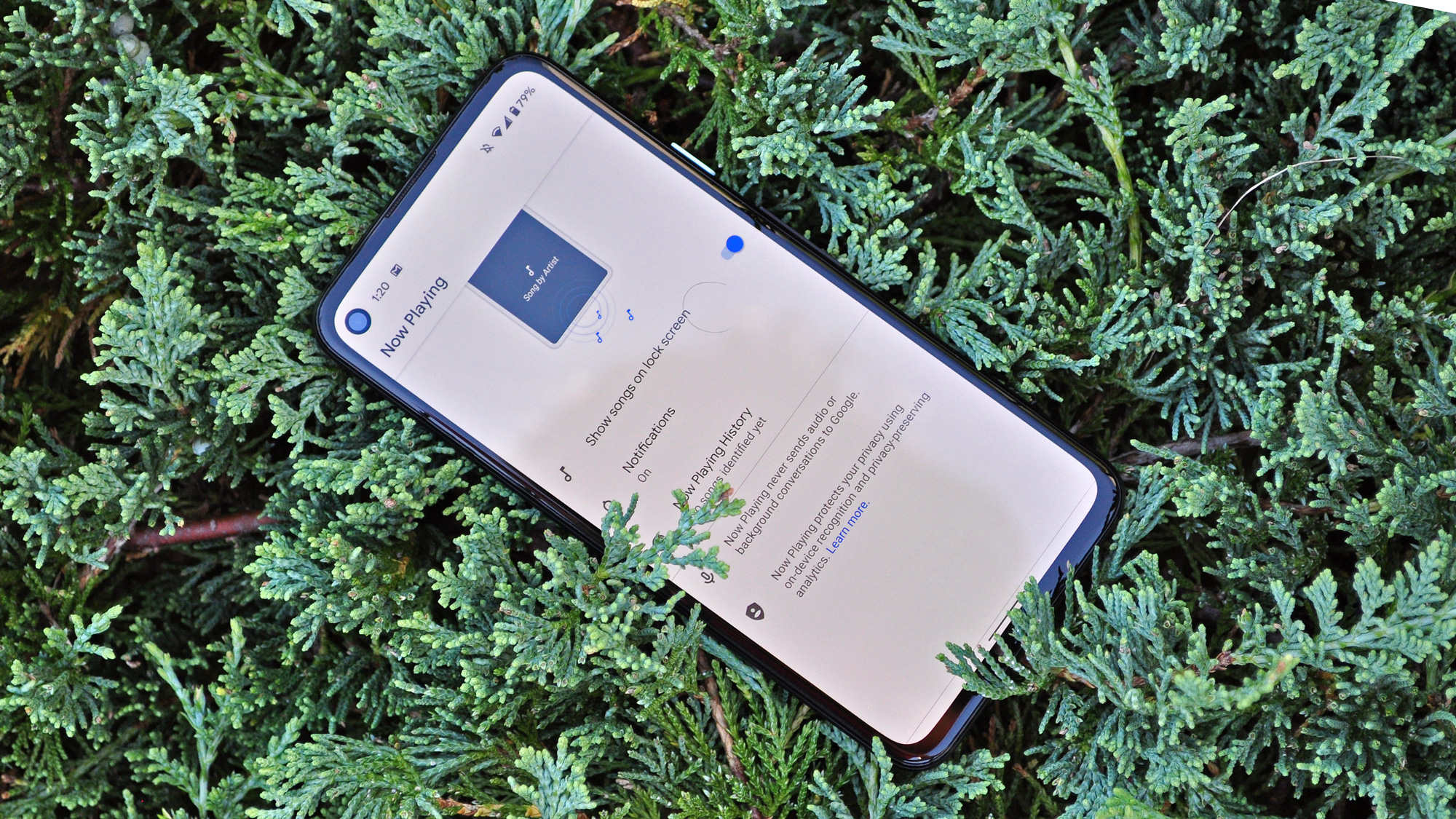
Google promises a minimum of three years of software and security updates for the Pixel 4a, which is far better than the usual year that most cheap Android phones get, or even the two years at best granted to higher-end models. Of course, three years falls short of the five or so years Apple supports its handsets, but it’s respectable nevertheless.
Google Pixel 4a vs. iPhone SE
The iPhone SE is an excellent proposition for those who want to remain in the Apple ecosystem, and of course its performance is unmatched, thanks to the A13 Bionic chip. The iPhone SE also offers a water-resistant design and wireless charging — two features the Pixel 4a lacks.
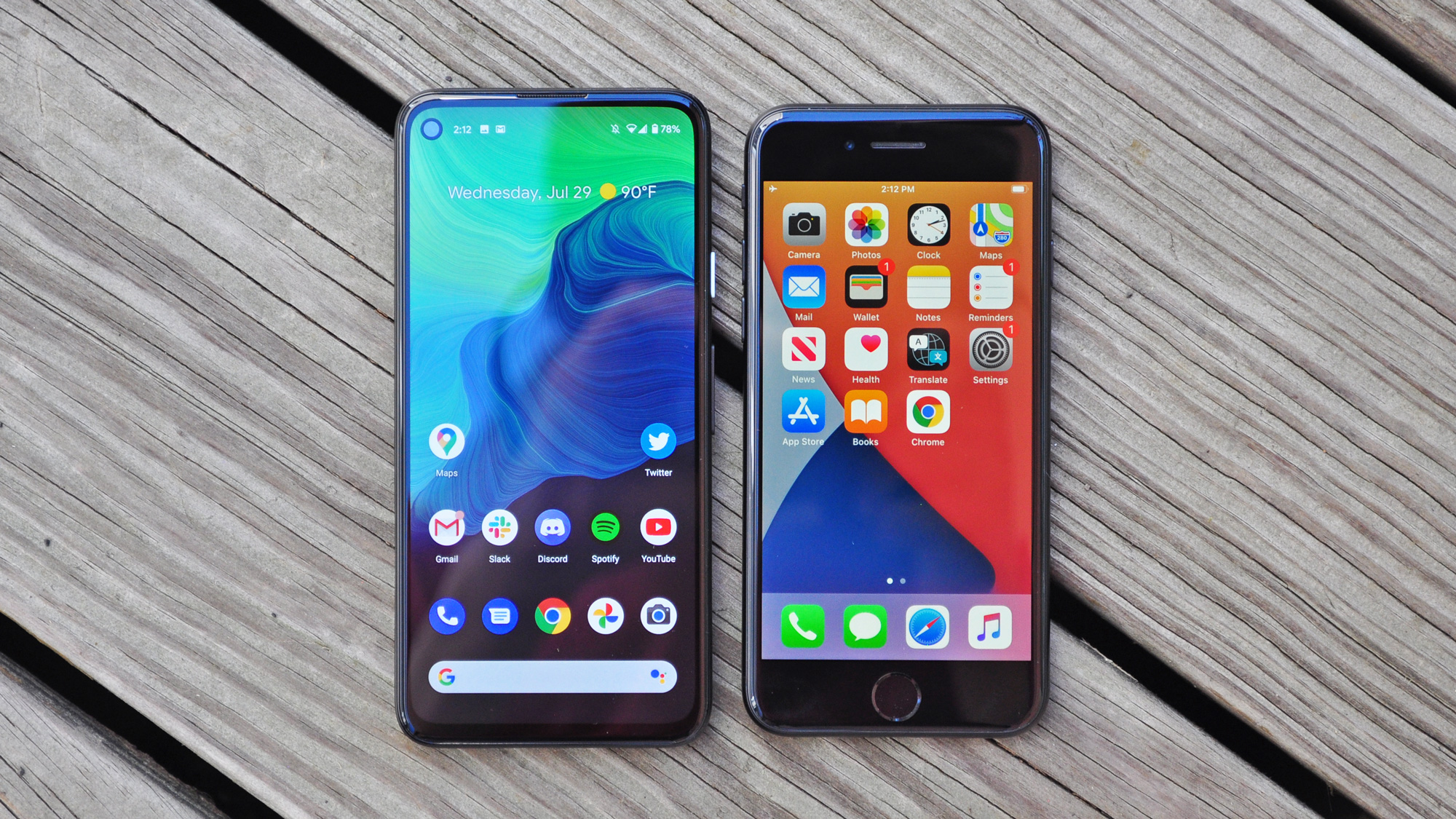
That said, the Pixel 4a is superior in many ways. It has a more sophisticated camera, a newer design with slimmer bezels, a much roomier OLED display, fast charging out of the box and a headphone jack — all for $50 less than the 64GB iPhone SE and a full $100 less than the model with comparable storage. I personally think the Pixel 4a is a better phone for most people, because it checks more boxes.
Google Pixel 4a vs. OnePlus Nord
The OnePlus Nord is an excellent alternative to the Pixel 4a, provided you live in an area where OnePlus’ midrange phone is available. The £379 Nord offers a larger 6.4-inch display with a faster 90Hz refresh rate, 5G connectivity and a bigger battery that lasts longer on a charge. The Nord also pulls off both wireless charging and wired charging that’s even faster than the Pixel 4a’s.
Since this review as posted, OnePlus has shipped the OnePlus Nord N10 5G, available for a mere $299. That phone offers 5G — the Pixel 4a does not, making that omission seem more glaring as time goes by.
Google Pixel 4a review: Verdict
With the Pixel 4a, Google has once again delivered a device I wouldn’t hesitate to recommend to anyone who wants the best phone for the least amount of money — at least if they don't want to hold off for the expected release of the Pixel 5a in a couple months.
The Pixel 4a does practically everything well — it has a pretty display, solid performance, lots of base storage, a well-built design and especially, a stunning camera. About the only area in which it comes up short is battery life, but even then, that’s not a deal breaker.
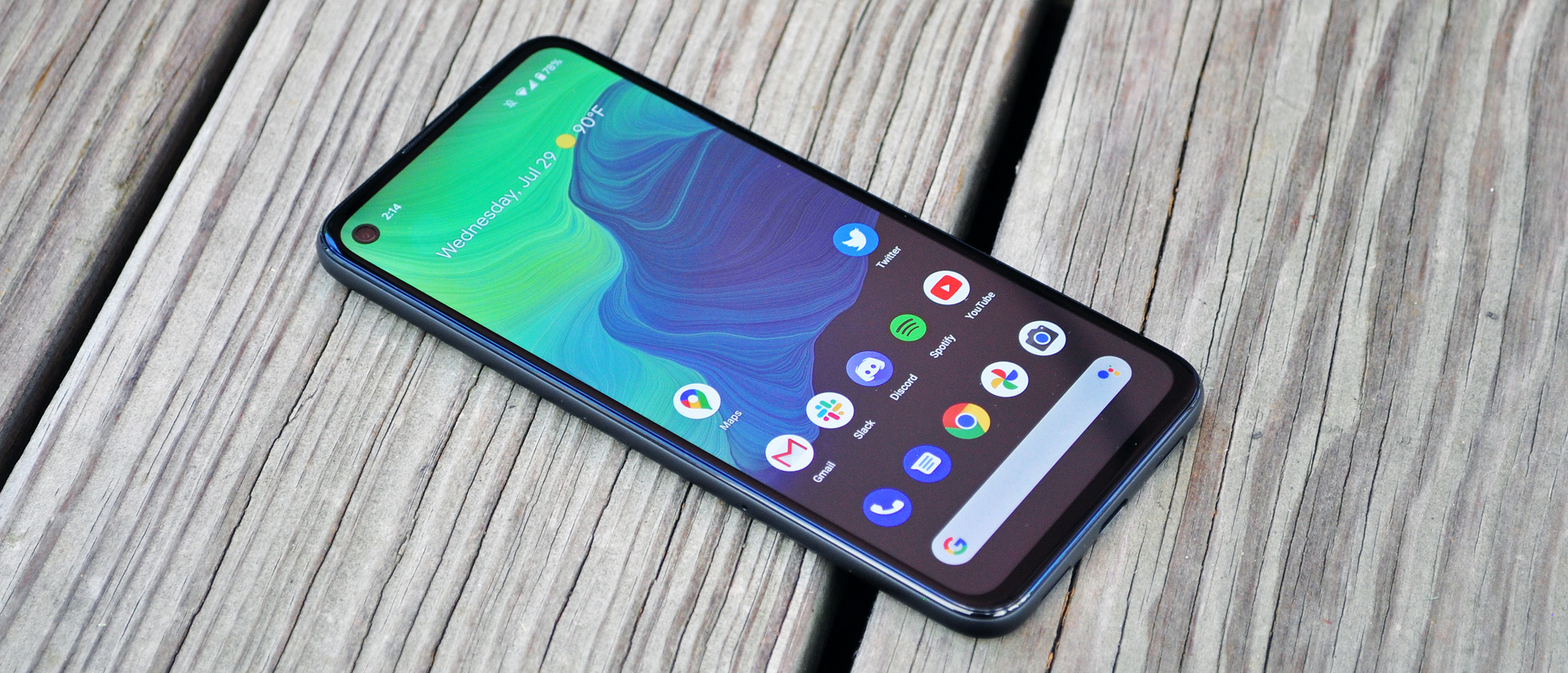
The midrange phone market is flush with options, and many will naturally shop the Pixel 4a against its two best competitors — the iPhone SE (which is faster) and the OnePlus Nord N10 5G (which has a better display, bigger battery and 5G). And of course, there's a better in-house option a year after the Pixel 4a's release in the form of the Pixel 5a, though you will have to pay more for that model.
But overall, the Pixel 4a strikes a great balance between affordability, performance and quality. Like its predecessor, it makes you wonder why anyone should spend twice or three times as much on a so-called flagship. If you're on a tight budget and dead set against paying more than $400 for a phone, the regular Pixel 4a remains a great value that's becoming harder to find. Otherwise, we recommend opting for the more powerful Pixel 5a at this point.
Adam Ismail is a staff writer at Jalopnik and previously worked on Tom's Guide covering smartphones, car tech and gaming. His love for all things mobile began with the original Motorola Droid; since then he’s owned a variety of Android and iOS-powered handsets, refusing to stay loyal to one platform. His work has also appeared on Digital Trends and GTPlanet. When he’s not fiddling with the latest devices, he’s at an indie pop show, recording a podcast or playing Sega Dreamcast.
-
gk1234 There is no way any of these phones can compare to HUAWEI P30 Pro on zoom (50X) , battery (3 days) , night vision, looks. Used to own the 2XL.Reply -
blackbird1001 Reply
Besides costing double price the HUAWEI P30 Pro only delivering half. -The software is very bad.gk1234 said:There is no way any of these phones can compare to HUAWEI P30 Pro on zoom (50X) , battery (3 days) , night vision, looks. Used to own the 2XL.
It lacks access to Google Play, and direct access to Gmail and Map can also be the thing that takes the whole life of Huawei Mobile Phone out af China. You must, if nothing else, be much cheaper before anyone will consider them
During the 2 years I have owned one.
Then it's gone from reasonable to some real shit.
Will both own you and all your data, and decide that you should use their own shitty versions of software.
(google wants that too. But you do not have to sell both body and soul to buy a phone.)
In the beginning, one could easily root one a Huawei, but it has become very cumbersome.
With the approach now has, then it is necessary to have a phone that one bothers to have.
Other phones are no better., there for I look at a oneplus or google ,as it is the most pure version of Android.
If Huawei, will have just the slightest chance of survival.
Then they have to open up their phones as well as remove their poor versions of software.
A direct opportunity for FOSS software will make them the winner for many.
---
Just waiting a few months and see what happens with price. But think camera is to decide my choice.
A Oneplus 8 Pro will then be the best choice, but I DO NOT WANT TO GIVE SO MUCH MONEY FOR A PHONE that only lasts 2-4 years
So OnePlus Nord or Googe 4a for me. -
blackbird1001 Reply
Think that's the price of a good camera.Ergopr0xy said:So one camera but still that ugly square in the back
Physics about light -
Phoneitin Apple fanboy. Using the iPad iPhone 11 Pro. Wanted to experience android. After reading this review I figured this was an inexpensive way to experiment . Trading in an old iPhone 7 from my phone history drawer got me this phone for a couple hundred bucks. I can try it until the pixel 5 comes out and then if I really like the android system I can trade it in… Everyone posted some valid points.. Obviously I will miss the wide-angle lens… But I’m looking forward to using all the Google goodies Google assistant makes Siri look like an infant…Reply -
ej1 Replyadmin said:The Pixel 4a is the perfect phone for the perfect price.
Google Pixel 4a review : Read more
Thanks for the prompt review, Mr. Ismail. However, I am truly surprised by the battery life data. How could it be that bad? And worse than the iPhone SE??
Other outlets are reporting that the 4a battery life is better than iPhone SE. It is so tough to get a consensus on battery life.
Has your battery life testing changed at all in ANY way since you did the battery testing for the Pixel 3a? (You guys have always been correct to standardize brightness.)
Was adaptive battery enabled or disabled?
Is the 4a's chip or screen more power hungry than 3a's?
Is Android 10 somehow more power hungry than Android 9??
Anyway if the 4a battery life is really this bad, I must be consistent with my earlier complaint regarding the iPhone SE review ie a phone with such a bad battery life does not deserve a 4.5/5 score.
Of course different people value different things in a phone, but data has shown that people value camera and battery the most; therefore, if a phone does not nail the camera and battery life, even a 4/5 score seems too high. -
adam.ismail Replyej1 said:Thanks for the prompt review, Mr. Ismail. However, I am truly surprised by the battery life data. How could it be that bad? And worse than the iPhone SE??
Other outlets are reporting that the 4a battery life is better than iPhone SE. It is so tough to get a consensus on battery life.
Has your battery life testing changed at all in ANY way since you did the battery testing for the Pixel 3a? (You guys have always been correct to standardize brightness.)
Was adaptive battery enabled or disabled?
Is the 4a's chip or screen more power hungry than 3a's?
Is Android 10 somehow more power hungry than Android 9??
Anyway if the 4a battery life is really this bad, I must be consistent with my earlier complaint regarding the iPhone SE review ie a phone with such a bad battery life does not deserve a 4.5/5 score.
Of course different people value different things in a phone, but data has shown that people value camera and battery the most; therefore, if a phone does not nail the camera and battery life, even a 4/5 score seems too high.
Thanks for reading! The battery life is a bit disappointing, yes. Although our battery test has always been the same in concept — web pages loaded over LTE/sub-6GHz 5G at 150 nits of screen brightness — the list of sites the test rotates through changed before the end of last year. The sites used to be stored locally on a server, and the page loads were less demanding. We since changed to simply using a list of live sites on the world wide web so it more accurately reflects the demands on modern devices.
Adaptive battery was enabled, and there's no reason to think Android 10 is less efficient than Android 9, or that the Snapdragon 730G is less efficient than the 670 in the Pixel 3a. The iPhone SE does have a much smaller battery, though iOS has always been a bit better than Android in terms of managing resources in the background. The SE also has a much smaller LCD-powered screen, and a third of the RAM of the Pixel 4a, which all helps longevity on a charge.
I understand the opinion on the score based on battery and that's totally fair. In my personal opinion, the 9-hour mark in our test is more mediocre than awful. 10 is good, and anything that stretches beyond 11 is very good. Personally I'd recommend the Pixel 4a to the average buyer, though if that person was particularly concerned about battery life, at that point I'd direct them toward another device. Maybe the Moto G Power, which is cheaper and lasted more than 15 hours, or the OnePlus Nord if they can get one. Unfortunately, great battery life, camera and performance all at this price is tough to find.

